Media coverage
Share

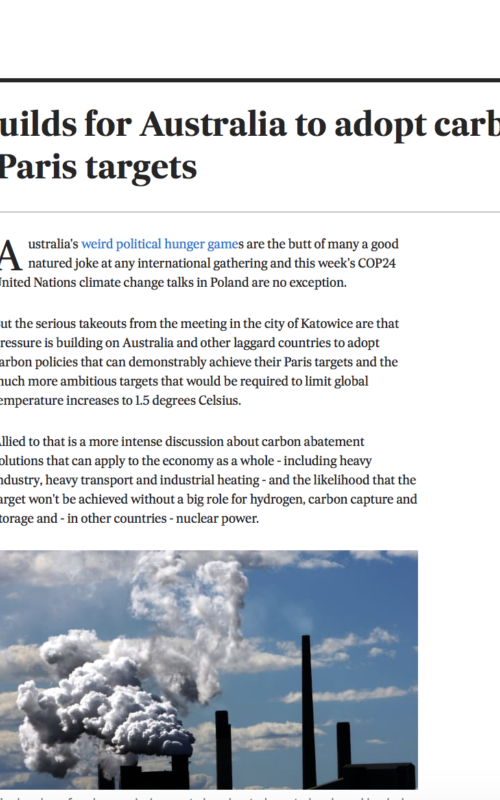
Australian Financial Review
Australia's weird political hunger games are the butt of many a good natured joke at any international gathering and this week's COP24 United Nations climate change talks in Poland are no exception. Article includes findings from a series of factsheets evaluating Australia’s emissions profile and policies Climate Analytics produced for the Australian Conservation Foundation.
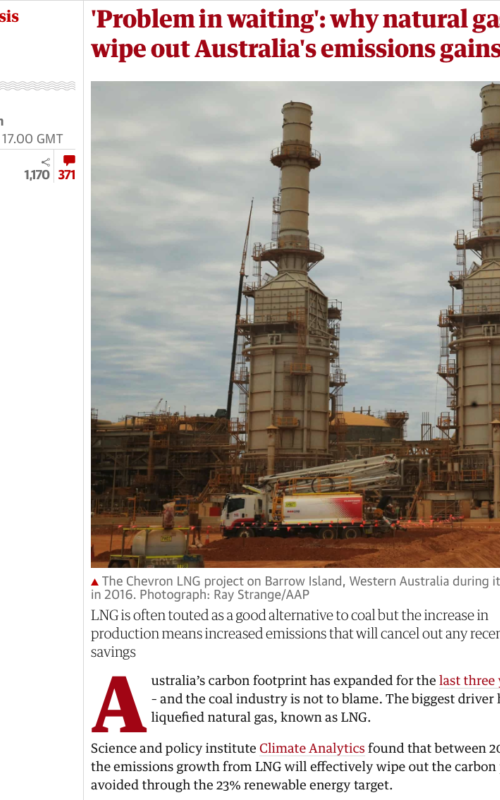
The Guardian
LNG is often touted as a good alternative to coal but the increase in production means increased emissions that will cancel out any recent savings. Science and policy institute Climate Analytics found that between 2015 and 2020 the emissions growth from LNG will effectively wipe out the carbon pollution avoided through the 23% renewable energy target.
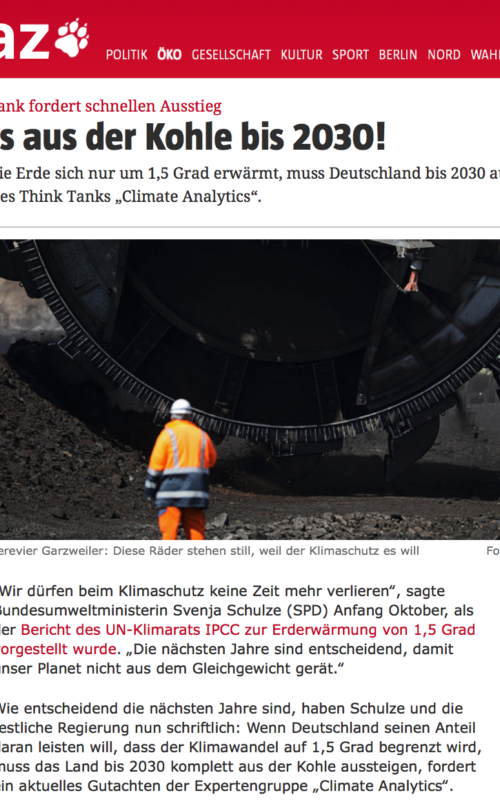
taz
In order for the earth to warm up by only 1.5 degrees, Germany has to get out by 2030. This is shown by a study by the think tank Climate Analytics.
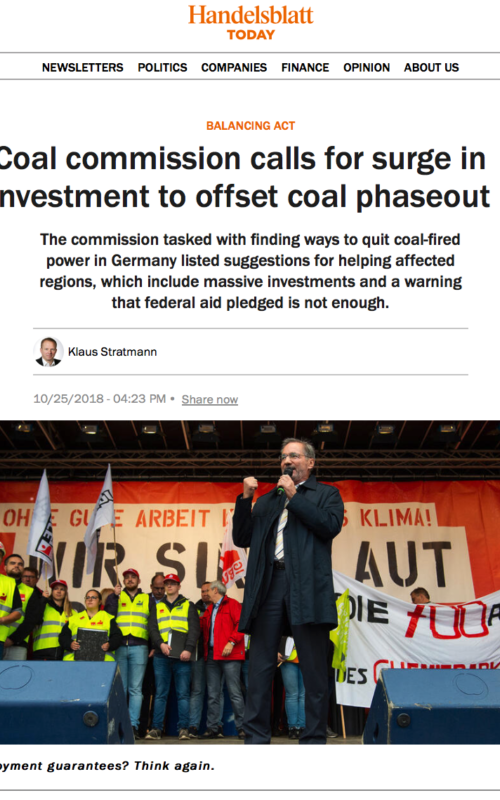
Handelsblatt
The commission tasked with finding ways to quit coal-fired power in Germany listed suggestions for helping affected regions, which include massive investments and a warning that federal aid pledged is not enough.
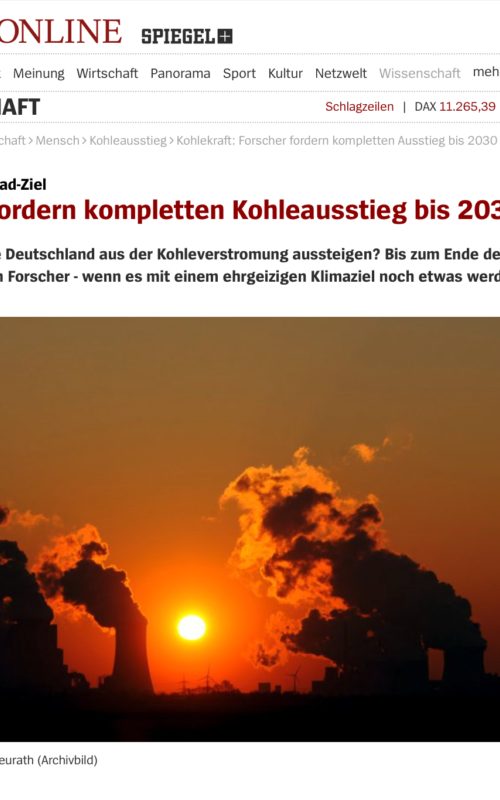
Spiegel ONLINE
How quickly should Germany abandon coal-fired power generation? By the end of the coming decade, researchers say - if we are to achieve anything else with an ambitious climate target.
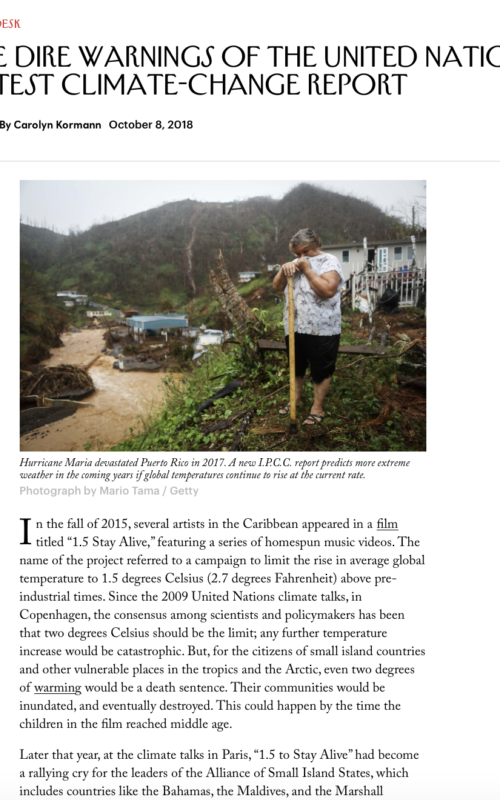
The New Yorker
The New Yorker coverage of the IPCC special report on 1.5°C, quoting Climate Analytics' Dr Adelle Thomas. “Robust scientific literature now shows that there are significant differences between 1.5 and 2 degrees,” Adelle Thomas, a geographer from the Bahamas and also one of the report’s lead authors, told me. “The scientific consensus is really strong. It’s not just a political slogan: ‘1.5 to stay alive.’ It’s true.”
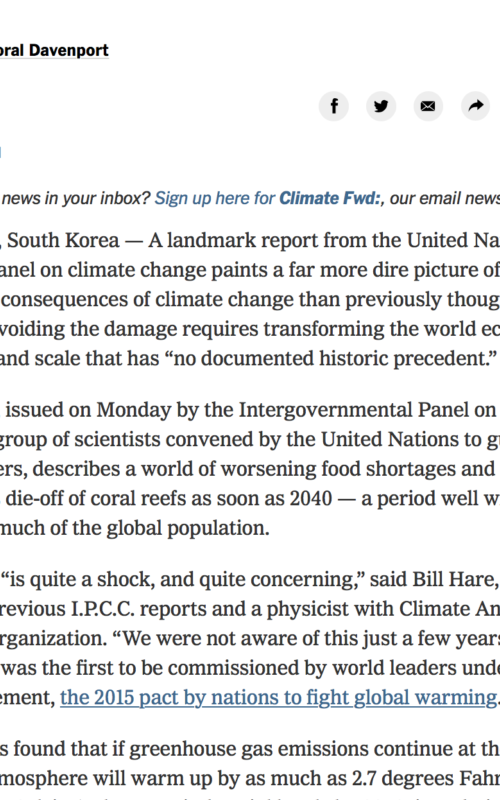
The New York Times
INCHEON, South Korea — A landmark report from the United Nations’ scientific panel on climate change paints a far more dire picture of the immediate consequences of climate change than previously thought and says that avoiding the damage requires transforming the world economy at a speed and scale that has “no documented historic precedent.” The report “is quite a shock, and quite concerning,” said Bill Hare, an author of previous I.P.C.C. reports and a physicist with Climate Analytics, a nonprofit organization. “We were not aware of this just a few years ago.”
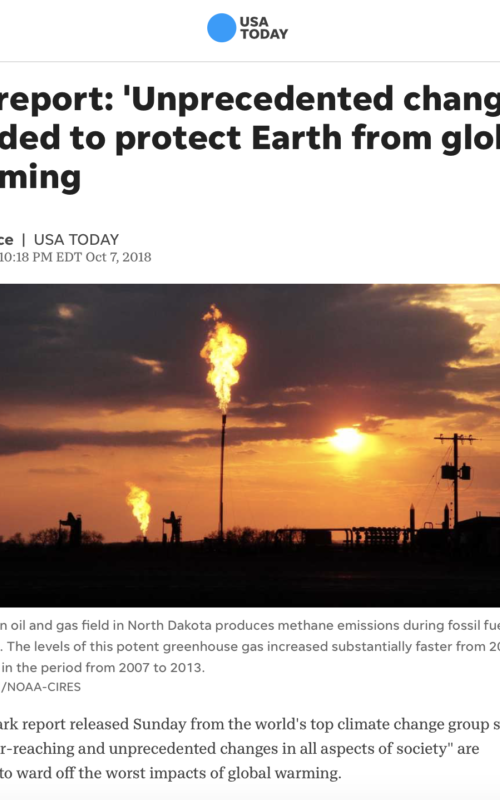
USA Today
A landmark report released Sunday from the world's top climate change group said "rapid, far-reaching and unprecedented changes in all aspects of society" are required to ward off the worst impacts of global warming. This report shows the longer we wait, "the more difficult, the more expensive and the more dangerous it will be,” said Bill Hare, a physicist with the nonprofit group Climate Analytics.
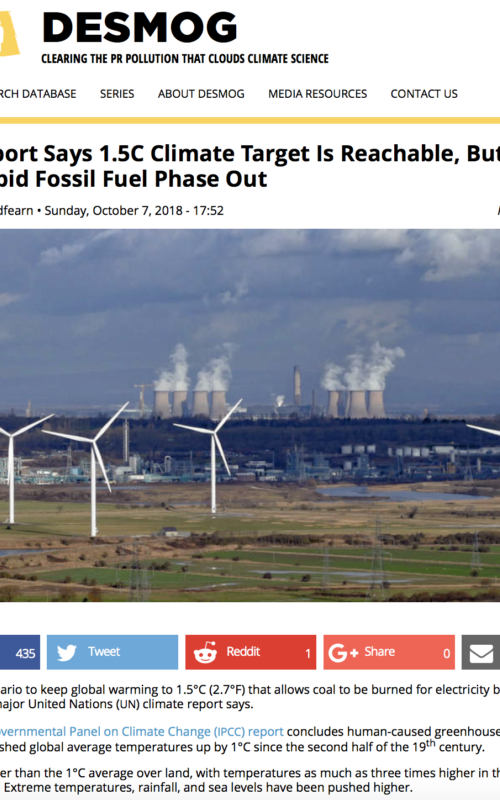
DESMOG
There is no scenario to keep global warming to 1.5°C (2.7°F) that allows coal to be burned for electricity by the middle of this century, a major United Nations (UN) climate report says. The UN’s Intergovernmental Panel on Climate Change (IPCC) report concludes human-caused greenhouse gas emissions have already pushed global average temperatures up by 1°C since the second half of the 19th century. Dr. Bill Hare, CEO of Climate Analytics, took part in the IPCC meeting as a science advisor to Small Island Developing States and was accredited to the Grenada delegation. He said the report “has sent the strongest message yet from the scientific community that the era of fossil fuels has to end soon if we are to protect the world from dangerous climate change and limit warming to 1.5°C.”
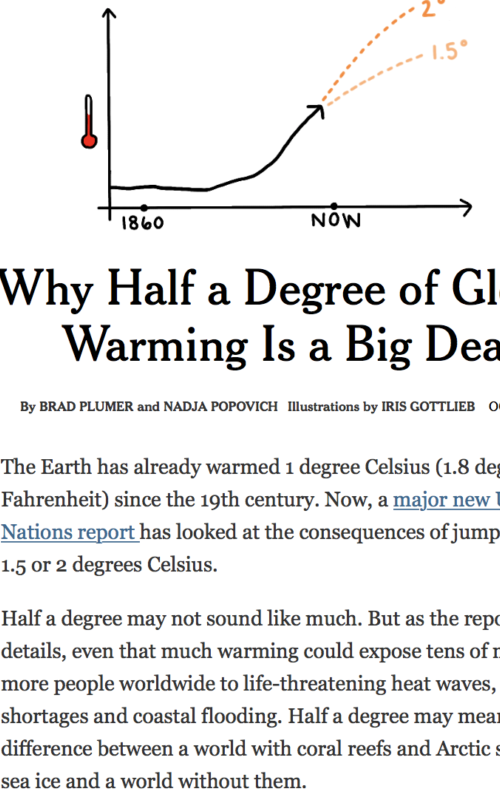
The New York Times
The Earth has already warmed 1 degree Celsius (1.8 degrees Fahrenheit) since the 19th century. Now, a major new United Nations report has looked at the consequences of jumping to 1.5 or 2 degrees Celsius.
“If you’re looking at this one region, which is already water-scarce today and sees a lot of political instability, half a degree makes a really big difference,” said Carl-Friedrich Schleussner, the head of climate science and impacts at Climate Analytics. “It’s a good reminder that no one experiences the global average temperature.”